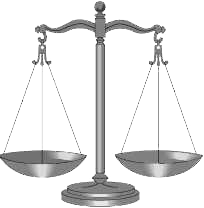Top Ten Changes in the Legal Profession Since 1979, Part I
 I was asked by Michael O’Hear to serve as the January guest blogger (blawger?), and thank him for this opportunity. I teach courses in Constitutional Law, Evidence, Professional Responsibility, and American Legal History at St. Mary’s University School of Law in San Antonio, Texas, where I began teaching in the Fall of 1987. My website is at www.michaelariens.com. I started at Marquette Law School in the Fall of 1979. Since I have little idea what might interest any audience, I decided to use the crutch of an-end-of-the-year (or in this case, beginning-of-the-year) Top Ten list. I’ve listed what I perceive as the ten most important changes in the American legal profession since I entered law school.
I was asked by Michael O’Hear to serve as the January guest blogger (blawger?), and thank him for this opportunity. I teach courses in Constitutional Law, Evidence, Professional Responsibility, and American Legal History at St. Mary’s University School of Law in San Antonio, Texas, where I began teaching in the Fall of 1987. My website is at www.michaelariens.com. I started at Marquette Law School in the Fall of 1979. Since I have little idea what might interest any audience, I decided to use the crutch of an-end-of-the-year (or in this case, beginning-of-the-year) Top Ten list. I’ve listed what I perceive as the ten most important changes in the American legal profession since I entered law school.
1. Increasing competition for business by firms engaged in the private practice of law.
No other change comes close to the impact created by the increased in competition for clients. Several of the other changes listed below are a direct or indirect result of the quest for business. Intensifying competition has altered the promotion-to-partner tournament played by associates; including a substantial lengthening of the years required to reach partnership; changed the calculation of both associate and partner pay (including the dreaded “eat what you kill” compensation method); led to changes in the organizational structure of law firms; increased the shady business of case runners in the personal injury field; and affected the rules of ethics, the mentoring system of recent law school graduates, and law school applications.
One reason why some newly-minted lawyers are paid $160,000 to work at a large law firm is because those lawyers will eventually earn the partners significant profits. It is also because those lawyers are unlikely to make partner at the firm where they start.
